Kids Pitching Coach Funny Voice Over
Welcome to the Youth Baseball Edge podcast
- Over a half-million downloads!
- The #1-ranked amateur baseball podcast on iTunes
- Hit the Top Ten podcasts in the entire Amateur Sports category in iTunes
- Awarded "New & Noteworthy" in iTunes just two weeks after launch
Past guests include:
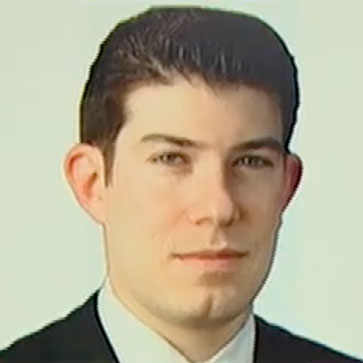
Jeff Passan
Yahoo Sports
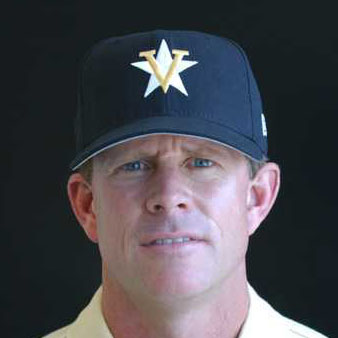
Tim Corbin
Vanderbilt
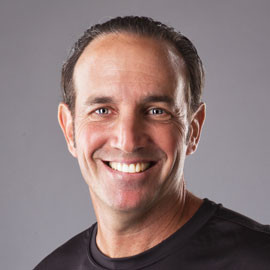
Alan Jaeger
J-band creator

Kyle Boddy
Driveline Baseball

Sam Miller
Baseball Prospectus
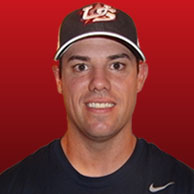
Justin Stone
EliteBaseball.tv
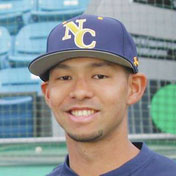
Kai Correa
San Francisco Giants
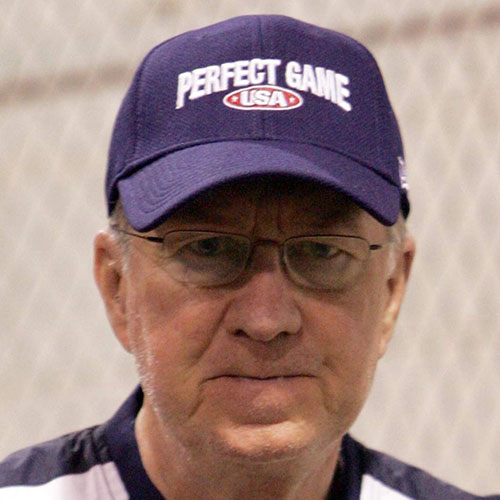
Jerry Ford
Perfect Game
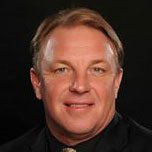
Ron Wolforth
Texas Baseball Ranch
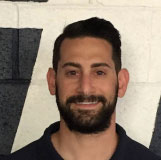
Austin Wasserman
Wasserman Strength
If you like the podcast, click the links below to subscribe to the podcast so you'll never miss an episode:
- Subscribe via iTunes
- Subscribe via RSS (non-iTunes feed)
- Subscribe via Stitcher (Android devices)
Wait...what's a podcast anyway?
A podcast is a series of free downloadable audio shows that you can listen on your computer or mobile device. People usually listen while commuting, working out, doing chores, etc.
To listen on your mobile device, you'll need an app. For iOS users, open the Podcasts app; for Android users, download the free Stitcher Radio app. In the app, search for "Youth Baseball Edge". Tap the "Subscribe" button for the show and you'll be all set. Now every time I release a new episode, it will automagically download right on your device. Additionally, you can listen to the podcasts here on the web site.
If you like the podcast, please leave me an honest rating and review on iTunes by clicking here. It will dramatically help the show and its ranking in iTunes! I greatly appreciate it. Enjoy the shows!
Think you know the rules about being HBP, runner vs fielder-fielding-batted-ball priority, runner vs fielder-catching-throw priority, home plate and the strike zone? Test your knowledge as Brandon Jackson, former umpire at the collegiate D1/D2/D3 levels, explains these rules in Part 2 of a four-part interview.
Plus Rob answers the Question of the Week about how to handle players who don't hustle on the base paths.Show notes
Admit it. You think you know the rules as much as the umpires do. I'll bet you don't. Brandon Jackson, former umpire at the D1/DII/DIII level, explains some rules coaches ought to know before going out to argue with the umpires. In this episode, we focus on interference vs obstruction and balks in Part 1 of a two-part interview.
Plus Rob answers the Question of the Week about how to control young teams in the dugout.Show notes
In the last episode, David Klein explained what Speedball is and why it's worth your consideration. In this episode, we get into the details of how the game works in Part 2 of a two-part interview.
Plus Rob (and Austin Wasserman) answer the Question of the Week (34:14) about whether jump ropes are beneficial to 8U players.Show notes
We as coaches work hard to revolutionize youth baseball practices so that it's no longer long, slow and boring. But is there a way to make games less slow and boring? David Klein is back (again) to share his idea for fast-paced youth baseball games where everyone gets lots of reps and no one sits the bench in Part 1 of a two-part interview.
Plus Rob answers the Question of the Week about how to manage rotation of a lot of kids in and out of games.Show notes
If a kid came up to you and asked you to help him with his pitching, would you know how to help him? Jim Brower of Brower Baseball shares his tips on how to analyze and help your youth pitchers in Part 2 of a two-part interview.
Plus Rob answers the Question of the Week about a clear plan of where to start with beginner to intermediate middle schoolers.Show notes
Hearing multiple perspectives on how to teach pitching—as long as none of them contradict each other (there are some absolutes after all)—can help fill in gaps or shed light on certain things that can help you teach your kids better. Jim Brower of Brower Baseball explains why he values training accuracy over training max velocity, plus more of his philosophy on training youth pitchers and how to get started in Part 1 of a two-part interview.
Plus Rob answers the Question of the Week about practice plan help for head coaches who don't have any helpers.Show notes
Reflecting back on the past year is a productive way to see what went well and what could have been better. Consider doing that with your own team to get your own specific lessons learned! In the meantime, Rob shares seven lessons that he learned this past year that may help you for the upcoming year.
Plus Rob answers the Question of the Week about whether to strictly train your kid to hit against the travel tryout pitching machine speed for the upcoming tryout or let the kid hit faster speeds.Show notes
Is stealing more bases as simple as telling your kids, "Be aggressive! They can't throw you out!" As kids move up the ranks, defenses CAN throw you out. Then what? Tyler Gillum of South Mountain Community College and the Savannah Bananas tells you what—and how—as he shares advanced base stealing techniques you can use at the youth and high school levels in part 2 of our two-part interview.
Plus Rob answers the Question of the Week about when your kid should play up. Show notes
Can advanced baserunning be taught to youth players? Tyler Gillum from South Mountain Community College and the Savannah Bananas says yes, and explains how to teach advanced baserunning to your kids in part 1 of a two-part interview.
Plus Rob answers the Question of the Week about whether establishing concrete rules of thumb would be better than trusting your gut when it comes time to pull a pitcher out of an inning. Show notes
Teaching entry-level players is arguably the toughest job as a baseball coach. Hitting a baseball is hard enough for adults, much less teaching it to uncoordinated kids. Same goes for pitching/throwing. And then the many rules in the game. How do you help grow beginner players? Justin Sherman from justintimebaseball.com shares his tips in part 2 of a two-part interview.
Plus Rob answers the Question of the Week about how to handle playing time for disinterested players. Show notes
Entry-level players aren't always tee-ball kids. They could be 7 or 8 years old or even 10 years old. If you are coaching beginner-level players (which obviously also could include tee-ballers), what do you do? Justin Sherman from justintimebaseball.com shares his techniques for helping the kids who need the most help. This is part 1 of a two-part interview.
Plus Rob answers the Question of the Week about whether 18-20 players is too big for a varsity team. Show notes
Finishing our discussion of catcher attack angle from the previous episode, Jay Weaver from catchingcamp.com also jumps into one-knee stances for youth catchers as well as simple methods for youth catchers to call pitches and pickoffs. This is part 2 of a two-part interview.
Plus Rob answers the Question of the Week about considerations for doing warmups and what age to start. Show notes
What is "catcher attack angle" when receiving? How is it useful and how do I teach it to my youth catchers? Jay Weaver from catchingcamp.com shares this significant new development in catching in part 1 of a two-part interview.
Plus Rob answers the Question of the Week about about how to handle overly aggressive baserunners at third base at 8U. Show notes
When you think "train second baseman", you may think "grounders, grounders and more grounders." And while mass grounders is important for any second baseman, there are other nuances of second base play that are often neglected. Perry Hill, the first base coach and infield coach for the Seattle Mariners, breaks down how you can properly train your second basemen (plus the remainder of our chat on first base play). This is part 2 of a two-part interview.
Plus Rob answers the Question of the Week about about how to help kids new to kid pitch get over the fear of getting hit by pitches. Show notes
If catchers wear the "tools of ignorance", then first basemen play the "position of neglect" because many youth coaches don't teach much to their first basemen even though it is a highly important position. Perry Hill, the first base coach and infield coach for the Seattle Mariners, breaks down how you can properly train your first basemen. This is part 1 of a two-part interview.
Plus Rob answers the Question of the Week about about how to help teach timing to 10-12 year-old hitters. Show notes
What is "drive" in pitching and is it important? Zak Doan, who works with youth pitchers and whose most famous client is Gerrit Cole, shares his thoughts on the subject as well as some pitching lesson/camp tips and thoughts on other pitching situations. This is part 2 of a two-part interview.
Plus Rob answers the Question of the Week about about how to help a kid who's hitting grounders in games but fly balls in practices. Show notes
How can we help our young athletes to improve their pitching accuracy? Zak Doan, who works with youth pitchers and whose most famous client is Gerrit Cole, shares some helpful pointers to help kids throw the ball with more accuracy. This is part 1 of a two-part interview.
Plus Rob answers the Question of the Week about about how to get over the feeling of being under-qualified as a youth baseball coach. Show notes
How can we create more positive experiences in youth baseball? How do we help youth athletes are struggling to succeed in baseball? Deven Morgan, Director of Youth Baseball at Driveline Baseball, shares some ideas to help kids have more positive experiences.
Plus Rob answers the Question of the Week about about whether any GameChanger stats can be used to help influence coaching drills in practices. Show notes
Training youth pitchers is not easy (safe to say that's an understatement). What does Driveline do and recommend? Deven Morgan, the Director of Youth Baseball at Driveline Baseball, shares some tips in part one of this two-part interview.
Plus Rob answers the Question of the Week about how to help a batter who mashes in training but is late to load in games. Show notes
2020 may have been a crazy year but there were still youth baseball lessons to be learned. Host Rob Tong looks back on 2020 and distills many things he learned into eight lessons that he shares in this episode.
Plus Rob answers the Question of the Week about whether 8U kids should give verbal pre-pitch defensive reminders. Show notes
Youth baseball has been around since kids ever knew about the game of baseball. But organized youth baseball as we know it today is wrong in three critical ways, according to Steve Ferroli. Is the sport of youth baseball—and the millions of kids participating in it—in serious danger? Does youth baseball need to be saved? Can it be? This is part two of a two-part interview.
Plus Rob (and Deven Morgan, the Director of Youth Baseball at Driveline Baseball) answer the Question of the Week about whether it matters if kids pitch from flat ground instead of raised mounds. Show notes
What can the Science of Hitting teach you about hitting, and can you improve on the Science of Hitting? Steve Ferroli, the personally-chosen successor to Ted Williams' theory of hitting shares some of his thoughts in part one of a two-part interview.
Plus Rob answers the Question of the Week about what travel teams can do in-between games at tournaments. Show notes
Learn from one of the best as Tom Griffin breaks down more advanced basics for catchers with the finer points of receiving, blocking and throwing, plus strategies, in part two of a two-part interview.
Plus Rob (and Nick Esposito) answer the Question of the Week about how to help nine-year-olds build strength for pitching. Show notes
If receiving, blocking and throwing are the fundamental aspects of the catcher position, what are the key teaching points of those aspects? What information goes beyond the basics for your catchers to give them more of an edge? Tom Griffin shares some helpful tips in part one of a two-part interview.
Plus Rob answers the Question of the Week about how many practices per week a 7U rec team should have. Show notes
Practice planning is one of the most frequently asked topics for youth coaches. With so many topics (hitting, pitching, fielding, throwing, baserunning, the mental game, the catcher position, team defense, situational defense, situational offense, bunting, rundowns…and those are just the main categories, not to mention the many subcategories within), how do you know what to work on, and when? Bo Ashabraner has some helpful advice to help you to plan smarter, not harder, on your practice plans in part two of a two-part interview.
Plus Rob answers the Question of the Week about the benefits of batting lefty instead of righty. Show notes
Do you have a plan when you start your team? Or when you start a new season? Aside from what drills you want to run, what philosophies do you have for your team—or as Bo Ashabraner puts it, what philosophies do you enforce or tolerate? Bo is here to help us break down some things you may want to consider for your team or season in part one of a two-part interview.
Plus Rob answers the Question of the Week about whether a 27-foot home indoor batting cage will be adequate to help a 9-10U hitter who's struggling. Show notes
Taming a wild swing in your youth hitters? The Swing Whisperer is in. Giving advice specifically targeted at the youth and high school level, Doug Latta, aka "The Swing Whisperer", is back to help calm those free-spirited hitters in this finale of a three-part interview. (Missed part 1? Click here Missed part 2? Click here)
Plus Rob answers the Question of the Week about whether the travel baseball landscape for 7-8 year olds has improved since the early days of this podcast. Show notes
When it comes to hitting, we can talk about timing, pitch recognition, game-like reps, strike zone recognition, vision training and more. But at some point, we're going to have to teach hitting mechanics to our kids if the kids are going to advance to the next level of hitting. But for every Chris O'Leary or Bobby Tewksbary, there are at least a thousand others who give misinformation on hitting mechanics. Doug Latta, aka "The Swing Whisperer", returns to help give us some insight on hitting mechanics that could literally be game-changers in part 2 of a three-part interview.
Plus Rob answers the Question of the Week about how to teach timing when hitting live pitching for 7-10 year olds. Show notes
There is no shortage of hitting advice, particularly on the internet. Some good. Some not so good. And some just plain awful. Confused by what is information and what is misinformation? Doug Latta, aka "The Swing Whisperer", helps us sort out some of the information from the misinformation in part 1 of a three-part (yes, three part!) interview.
Plus Rob (and Austin Wasserman) answer the Question of the Week about what age to teach kids to pronate when pitching, especially with a change-up. Show notes
Mental health is declining for more young people than ever before, thanks to digital technology (and possibly also relating to the chaos surrounding COVID-19). Is there anything youth baseball coaches can do to help young athletes? Or is this only a problem for counselors? Previous guest David Klein returns to give tips on how to help our team grow closer together and improve their mental health. in part 2 of a two-part interview.
Plus Rob answers the Question of the Week about whether kid pitchers should be more conscientious about hitting batters with pitches or to not worry about hitting batters. Show notes
Video screens (video games, mobile phones) are probably one of the last things we consider when it comes to baseball. Yet screen time leaves a bigger footprint in our kids' lives than we think—yes, even on the baseball field. Former guest David Klein returns to discuss this important yet under-recognized aspect of our kids' athletic lives in part 1 of a two-part interview.
Plus Rob answers the Question of the Week about how two competitive tryout rejections in a short span might affect an 8-year-old, and how to prepare. Show notes
As we start the new year and the new season, you can make significant strides by remembering to avoid mistakes (and repeating successes) you made in the past. Rob Tong shares lessons learned from several members of Edge Nation, as well as two lessons learned from the esteemed Pete Caliendo, host of the Baseball Outside The Box podcast, plus three lessons Rob learned in 2019.
Plus Rob answers the Question of the Week about what tee to buy for a four-year-old.Show notes
Most high school players are not showcase-type players. What must these players do to get to the next level? Do they have any chance? Joshua Band, founder of PlateCrate, addresses these issues and more in Part 2 of a two-part interview.
Plus Rob answers the Question of the Week about what one product a middle school coach on a limited budget should purchase.Show notes
What must a top high school baseball prospect do to get to the next level? What is important in a player promo video? Joshua Band, founder of PlateCrate, shares his thoughts on how players & parents can help propel towards playing college baseball in Part 1 of a two-part interview.
Plus Rob answers the Question of the Week about whether a full-time travel program is better than a rec-based travel program.Show notes
With so many baseball products and ideologies competing in the marketplace, how do you know which ones work and which ones don't…or even worse, which ones make you worse? Are things like long toss and weighted baseballs just hype by their promoters? Are things like the Core Velocity Belt, Rope Trainer or the Durathro sock just hype by their inventors? Dr. Chris McKenzie, a board-certified sports & orthopedic physical therapist, discusses some products & protocols in Part 3 of a three-part interview.
Plus Rob answers the Question of the Week about how to help a team when kids have quit on themselves and their teammates.Show notes
When we help our kids learn to pitch, how much does tightness and flexibility play in the kids' ability to pick up what we teach? Dr. Chris McKenzie, a board-certified sports & orthopedic physical therapist, discusses these issues in Part 2 of a three-part interview.
Plus Rob answers the Question of the Week about whether the catcher position wastes an athletic kid's talents and degrades his knees and athleticism.Show notes
What is the kinetic chain? How does it work with pitchers? Is it important to know? What do we need to know about it? Dr. Chris McKenzie, a board-certified sports & orthopedic physical therapist, goes over these concepts in Part 1 of a three-part (yes, three part) interview.
Plus Rob answers the Question of the Week about drills for helping a 7-year-old work on his swing with a tee and net setup.Show notes
How to help a 9U team stuck in a rut striking out looking? When should tryouts start? What to do when skilled players talk negatively about themselves after a mistake? Rob Tong devotes this entire episode to answering these and other Question Of The Week submissions.
Plus Austin Wasserman has the Wass Strength Tip of the Week on mastering the basics of strength training and 3 things to watch out for.Show notes
How to help a 9-year-old having trouble with inside pitches? What do players in the Dominican Republic do to train for baseball? How to balance pitch recognition with being aggressive at the plate? Should errors be recorded at the 9-12U level? Rob Tong devotes this entire episode to answering these and other Question Of The Week submissions. Show notes
How do you help develop competitive toughness in players who aren't by nature that way? There's no silver bullet but Milwaukee Brewers minor league pitching coordinator Jake McKinley shares some pro tips to help us help our players be more competitively tough.
Plus Austin Wasserman has the Wass Strength Tip of the Week on kettle bell front rack reverse lunges. And Rob answers the Question of the Week about whether it's worth trying to hold runners on at third base. Show notes
Is competitive toughness a genetic trait or a developed trait? If it can be developed, how? Milwaukee Brewers minor league pitching coordinator Jake McKinley answers these questions and more regarding competitive toughness.
Plus Austin Wasserman has the Wass Strength Tip of the Week on single leg RDLs. And Rob answers the Question of the Week about how to help hitters who adjust to umpires making bad strike zone calls. Show notes
Do details matter? This is baseball, not science, right? Doesn't focusing on details suck the fun out of the game or practice? Highly successful high school coach Trent Mongero of Glyn Academy (Ga) explains the detail he goes through. The talk focuses on infielders but details are everywhere in baseball.
Plus Austin Wasserman is back with the Wass Strength Tip of the Week on managing athletes with Osgood Schlatter's Disease. And Rob answers the Question of the Week about how to help hitters use their legs more in the swing. Show notes
The siren call of sexy-looking drills is a temptation to many a coach. We wouldn't want to be called "the boring coach", would we? In this episode, Trent Mongero, the head coach at Glyn Academy (Ga), encourages us to focus on the fundamentals and shares his foundational drills with us—drills he uses even with college players.
Plus Rob answers the Question of the Week regarding what to do when a batter's back foot comes off the ground slightly during the swing and the back foot is on the toes after the swing. Show notes
When we think of improving hitting, we don't typically think "use ground forces" or "leg-to-leg transfer speed". We usually think swing mechanics, which we usually do by analyzing swing video. Justin Stone of Elite Baseball Training explains key concepts to help you help your kids improve their hitting. This is Part 2 of a two-part series. Show notes
When we think of improving power in the batting swing, how often does "ground forces" come to mind? Probably never, for most people. So does that mean it's not important? If it is important, how do we tap into it? Justin Stone, the Cubs' biomechanical hitting consultant and head of Elite Baseball Training, shares what he's learned regarding ground forces and how to teach it. Show notes
In with the new, out with the old. But before we truly say goodbye to 2018, it's important to take stock of any lessons learned over the past year as a youth baseball coach. I share some lessons learned by two respected coaches as well as some lessons I learned. Show notes
We've heard about the mental game but how do we actually apply it to our baseball coaching? How do we make the concept of mental game more practical? Brian Cain, #1 international best-selling author, speaker and coach, helps us with exactly that. Show notes
When one of your players doesn't feel confident on a particular day—or even throughout a particular season—what do you do? When a kid isn't having the results he wishes he had, what do you do? When you are looking for team leaders, what do you do? Brian Cain, a #1 international best-selling author, speaker and coach, helps answer some of these mental game questions and many others to help you give your team the edge. Show notes
Last time, I gave several small tips that can yield big improvements. They were small in the sense that they are minor changes to what you already do for your team. In today's show, I give several big tips that can yield big improvements. This round of tips is "big" in the sense that they will change the culture of your team or program and generally will require a long-term vision and implementation. Show notes
Did you know that if you are traveling from San Francisco to Washington, D.C. and are off-course by just one degree, you'd end up in Baltimore? Small changes can sometimes have big consequences. And sometimes that applies to coaching youth baseball as well. Many times we're looking for that magic bullet that will make our kids enormously better—yet sometimes we just need to make some small, fine-tuned adjustments. Rob Tong shares seven seemingly minor changes coaches and parents can make to help kids make big improvements. Show notes
Source: https://www.youthbaseballedge.com/podcasts/
0 Response to "Kids Pitching Coach Funny Voice Over"
Post a Comment